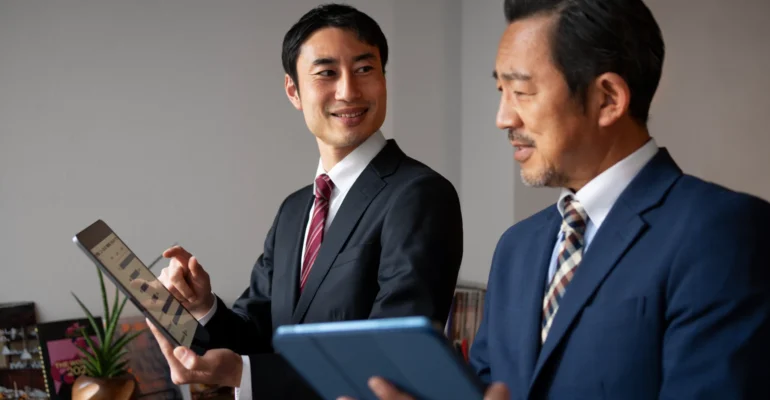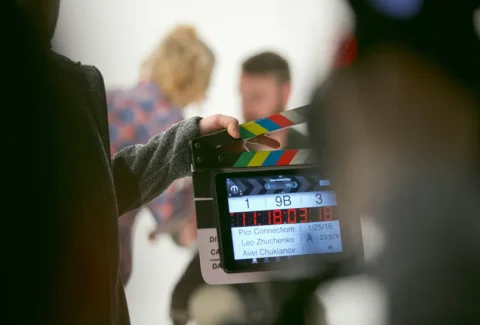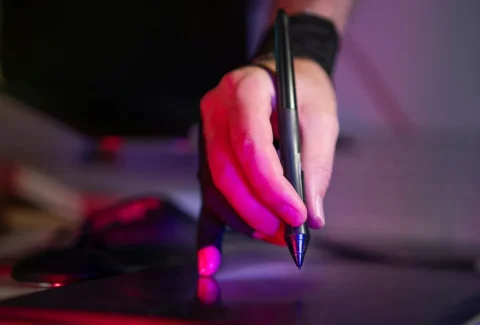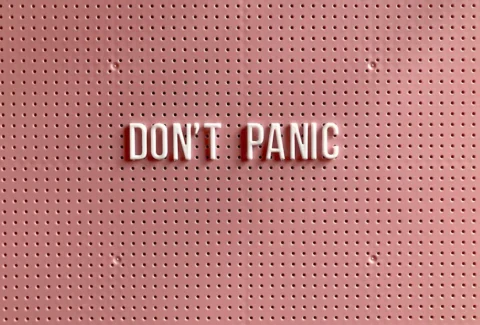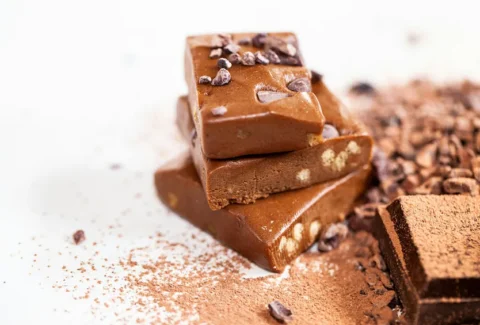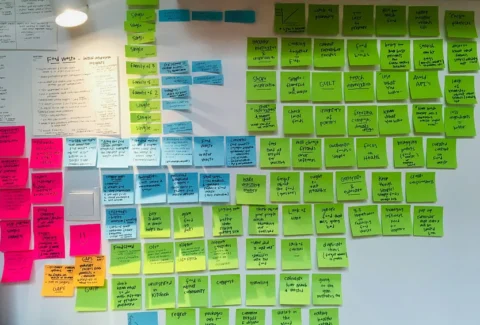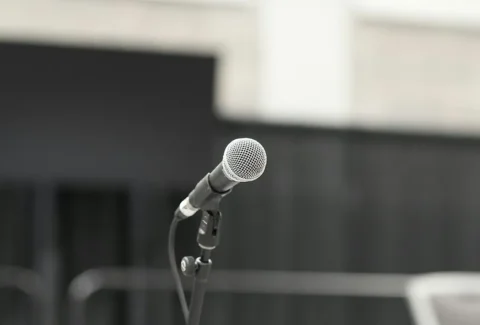If China:Engineers, then US:Lawyers!
Did you catch the second video of the Story Rules YouTube channel? 🙂
Wishing all of you a very happy Diwali! Incidentally, I re-upped my post on Story Housie – a fun game you can play with family and friends during your Diwali gatherings!
Thanks for reading The Story Rules Newsletter! Subscribe for free to receive new posts and support my work.
And now, on to the newsletter.
Welcome to the one hundred and thirty-eighth edition of ‘3-2-1 by Story Rules‘.
A newsletter recommending good examples of storytelling across:
- 3 tweets
- 2 articles, and
- 1 long-form content piece
Let’s dive in.
𝕏 3 Tweets of the week
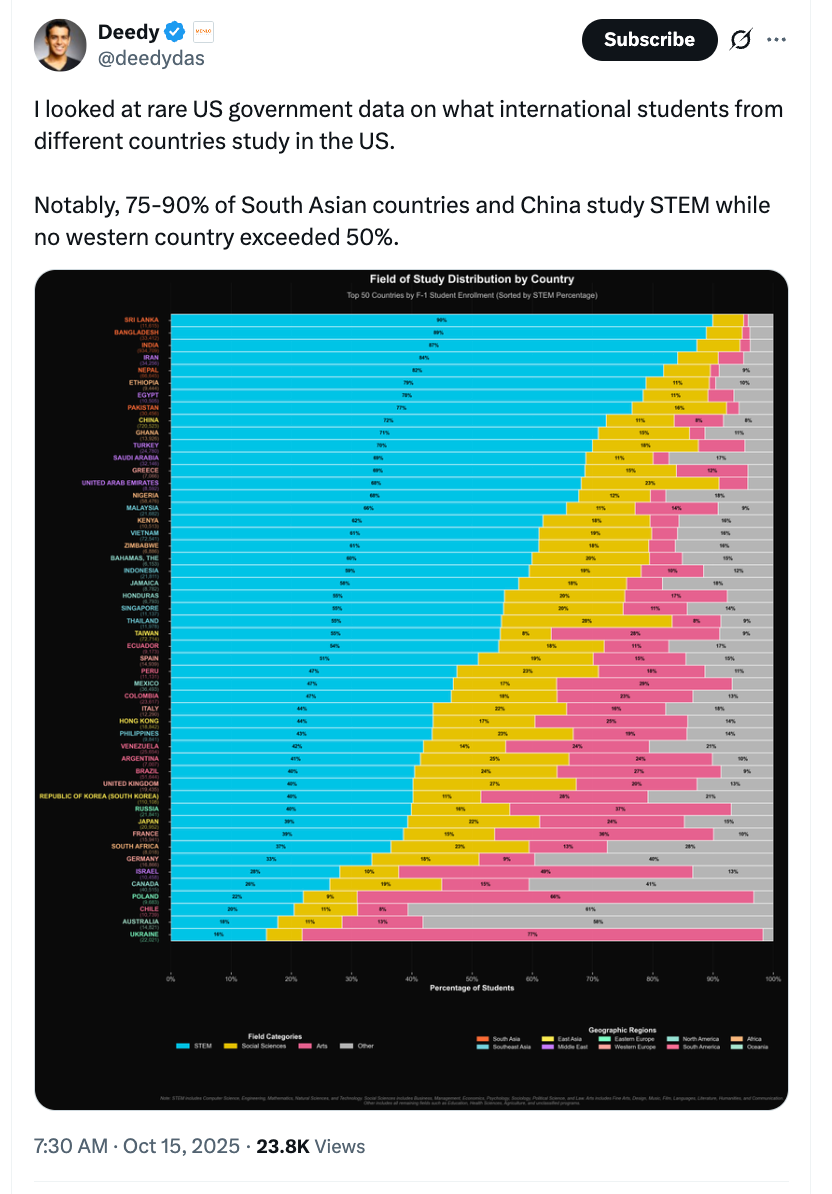
Great chart.
Poorer countries clearly see STEM as the main way out to prosperity, while richer countries can let their kids afford to take risks with the humanities?
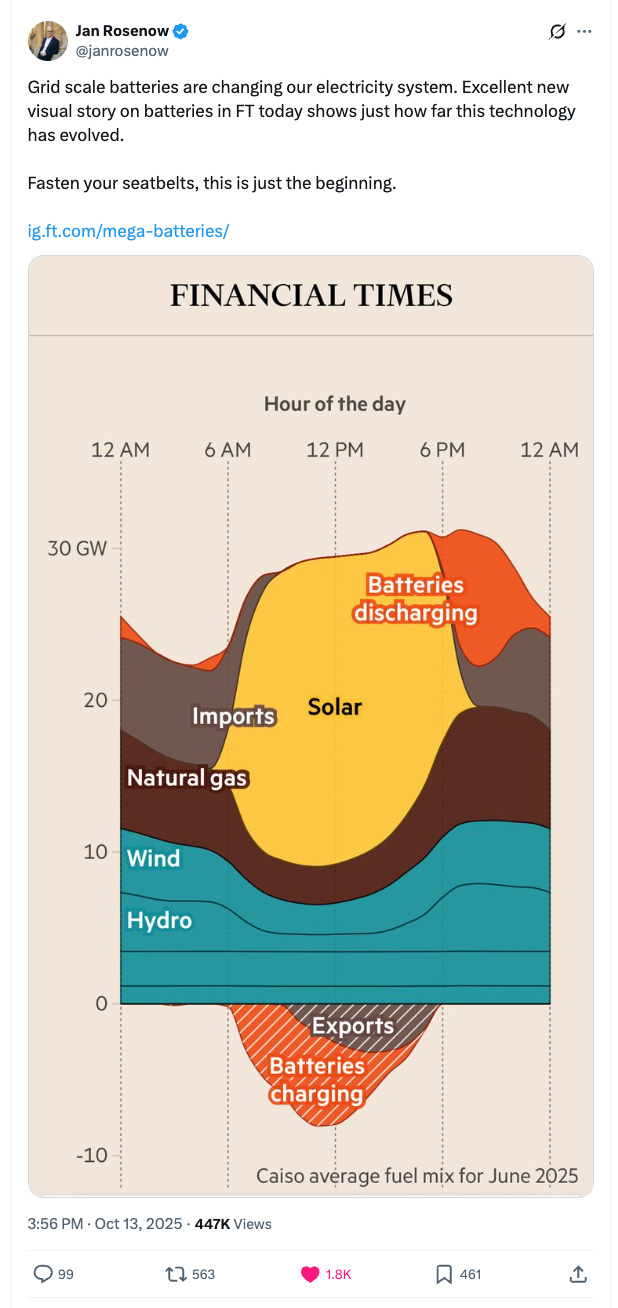
Cool chart – loved the way it shows both how batteries store energy during the day and discharge it during the night. Would be cool to see this mix from 10 years ago.

So true. The biggest roadblocks to exercise are mental, not physical.
📄 2 Articles of the week
a. Ed Conway on ‘What are Rare Earths’ (on X)
In this superb data-story explainer video, Ed Conway (Sky News) breaks down what are rare earths, why do they matter and why does China dominate them.
(I am unable to extract the transcript for this, but would highly recommend that you watch it on X)
b. ‘How to Save Beer’ by Mark Robichaux (NYT)
I loved this hilarious NYT piece, which berates the over-experimentation in beers in the US.
It starts with some bad news – craft beer sales fell in the US:
According to the Brewers Association, craft beer sales fell 4 percent last year. For the first time in two decades, more breweries closed than opened.
Robichaux thinks that breweries must abandon the ‘IPA arms race’ (hilarious):
For starters, it must abandon the I.P.A. arms race. Craft beer’s obsession with hops has gone too far, as what started as a rebellion against bland lagers has spiraled into a bitter, boozy blur. Double I.P.A.s. Triple I.P.A.s. Hazy. Juicy. Dank. West Coast. New England. Most taste like pine resin with a splash of grapefruit pith, and not in a good way.
(Disagree with the last line. And West Coast IPAs rock btw).
Another funny trend, especially in the US, is to give funky names to new beers. Robichaux has a field day with this paragraph:
Today’s overwhelmed consumer doesn’t have time to decode a beer called Sour Me Unicorn Farts (a glittered sour from DuClaw), Purple Monkey Dishwasher (a chocolate peanut butter porter from Evil Genius), or Hopportunity Knocks (a perfumed, piney I.P.A. from Caldera Brewing Company). They want to know: What does it taste like? Will I like it? Design matters, yes, but clarity matters more. Make labels that tell drinkers what’s inside, not just what’s funny at 2 a.m. in the brew house.
He concludes with an earnest ode to the importance of beer:
But beer isn’t broken. It’s just drifted from what made it matter. In ancient Mesopotamia, the birthplace of civilization, beer was central to daily life, and it’s endured this long for a reason. From barley and hops come balance, mild enough to keep the night civil, strong enough to make conversation flow. It’s the drink of moderation, laughter and second rounds.
The world could use a little more of that right now.
I heartily agree.
But, as an IPA-lover, I also say: may the experimentation continue, especially with IPAs and lagers.
Not with the stouts or seltzers or ciders, though. Some things are best avoided.
🎧 1 long-form listen of the week
a. ‘China Is Run by Engineers. America Is Run by Lawyers’ on Freakonomics Radio
In this superb episode, China expert Dan Wang speaks with Stephen Dubner of Freakonomics about the similarities and differences between China and the US.
Here’s the key point (BLUF if you will) of the episode:
Wang sees one huge difference: China is a country that is run by engineers, while the U.S. is a country run by lawyers. Engineers, he explains, are driven to build while lawyers are driven to argue, and obstruct.
The above is a superb pattern-finding insight.
Wang talks about this time living in China (he grew up in Canada) and shares a simple analogy to explain the censorship orientation of the Chinese state:
There’s a great sinologist named Perry Link who came up with this excellent metaphor for how to think about Chinese censorship, and that metaphor was the anaconda and the chandelier. So, imagine that you’re at a dinner table. There is a chandelier above you, and within this chandelier was a great anaconda that was just coiled inside, sleeping. All of these dinner guests are very well aware that there’s an anaconda hanging above them. And if they say the wrong thing, maybe the anaconda will wake up and come down and strangle them. A lot of the censorship in China consists of self-censorship. A lot of dinner guests don’t know if the anaconda will wake up, but they self-censor regardless.
This portion is a good illustration of the dangers of a powerful one-party state. It can work really well in terms of execution scale and speed, but can also be really dangerous for residents:
… there was a third act of “Zero Covid,” which started with the Shanghai lockdown in the spring of 2022. It was probably the most ambitious lockdown ever attempted in the history of humanity. China essentially demanded that its population in its largest city of 25 million people essentially could not leave their apartment compounds over the course of 10 weeks in the spring of 2022 because the Omicron variant of the virus, which was highly transmissible, was spreading out of control in the city. Xi’an in the Northwest also was subject to a very long lockdown. And so people were kept inside. A lot of folks felt food-insecure. The city had no plan really to implement a lockdown while delivering a lot of food to everyone. People who needed treatment for their diabetes, treatment for cancer, were essentially told, you need to stay at home because we don’t want Covid spreading. A lot of people across China were feeling very dissatisfied with “zero Covid.” In a few places, protests erupted, and I remember going to the Shanghai protests in October of 2022.
This situation didn’t end too well for Shanghai citizens:
Wang: The great denouement of “zero Covid” was that the central government essentially threw up its hands and said, “We’re not going to pursue this anymore.” Essentially, they dropped all of these barriers — not quite overnight, but over the course of a week in which “Zero Covid” became total Covid. And rather than trying to help and prepare the population to deal with this virus that the government has spent three years frightening people about, it really just allowed the virus to run rampant in the coldest month of the year, when a lot of people died.
Dubner: According to research published by the Journal of the American Medical Association, there were nearly two million excess deaths in China among people 30 and over in the first two months after the “zero Covid” strategy was abandoned.
Wang comes to his Central thesis – of China being an engineering state:
At various points in China’s recent past, the entirety of the senior leadership, all nine members of the Standing Committee of the Politburo, had degrees in engineering, and this was engineering of a very Soviet sort. We had top leaders that were hydraulic engineers and thermal engineers and mechanical engineers, and part of my central thesis is that China is ruled as an engineering state because China treats building a megaproject as the solution to any number of problems.
The downside – the rulers try to engineer their way out of all problems:
The problem is that they are fundamentally also social engineers that treat society as just a giant math exercise as well, which is why I spend a lot of time thinking about the one-child policy as well as “Zero Covid” — which, the number is right there in the name. There’s no ambiguity about what this means. So China is made up of physical engineers, people who try to engineer the economy as well. They’re also social engineers.
Wang then comes to the second part of his thesis – about the US being a lawyerly state:
WANG: I think that the U.S. is a lawyerly society because at first approximation, a lot of folks who end up in the White House have gone to Yale Law School.
Dubner: As Politico has pointed out, there were around 140 lawyers in the Biden White House, and about 25 percent of them had Yale law degrees.
What’s the issue with that? Too many blockages (of good and bad ideas):
I think the issue with lawyers is that lawyers are really good at saying no. Lawyers block everything, good and bad. So on the one hand, we don’t have a functional infrastructure almost anywhere in the U.S., but we also don’t have stupid ideas like the one-child policy.
Listen to the rest of the episode for more nuanced insights about the differences between the US and China
That’s all from this week’s edition.
Photo by Diana Polekhina on Unsplash

